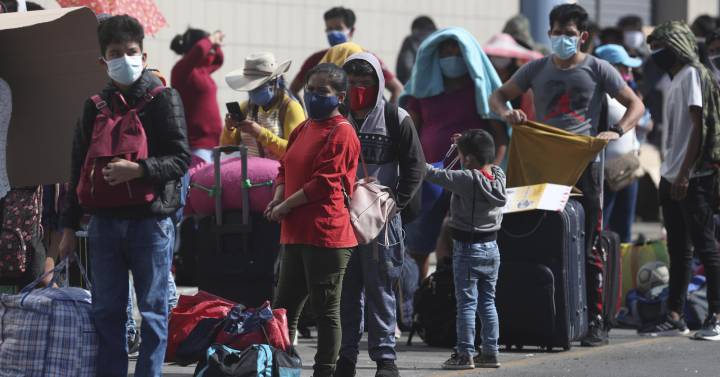It has been said that crises illustrate, that allow us to appreciate what did not seem evident, even though it was before our eyes. Hannah Arendt wrote that only when an instrument that we use every day breaks down, we look at it, how it is made, its shape and structure, in order to repair it. In the same way, this health crisis shows what is not working, not only in our health systems, but in the societies in which we live, in the relationship with nature and with others. It shows the effects on societies of an economic system that accentuates inequalities and, therefore, implies more risks of contagion for the less favored. It highlights the failures of our health systems, which have been abandoned by the austerity policies applied in almost all countries of the world and by privileging the interest of international finance over the well-being of its citizens. This has already been widely discussed and it is expected that, in the face of the current health crisis, the governments of our countries will rectify the course, as Alain Touraine said in an interview for this newspaper.
But perhaps the most important thing that this crisis shows us and the most redeemable for the future of humanity is that it shows our arrogance. In the last decades, the most optimistic have believed that technology will provide us with the solutions to correct the damages that our lifestyle is having on nature. It is a scientific / magical thought similar to that of economists who stated categorically, shortly before the 2007-2008 global crisis, which almost spoiled capitalism and the economy of various countries, that the financial hedges that had been created to ensure risky investments, they guaranteed that there would never again be a financial crisis; We know well the result of these predictions. For its part, the lack of preparation of almost all the countries of the world in the face of the current pandemic contrasts with the expectations that artificial intelligence has generated and the promise of biogenetics to "defeat death", as trans-humanism claims.
What an impressive failure before the attack of a microscopic entity! And what terrible consequences for thousands of people directly affected by the virus, and for the millions who will suffer from the economic crisis! What an excess of what the ancient Greeks called hubris , an attitude that was portrayed by Aeschylus in his Agamemnon, when the king of Argos returns home after destroying Troy and accepts to be offered the purple carpet of the great warriors , without considering that he had been helped by the gods. As we know, he ended up murdered by his wife, Clytemnestra and his lover.
The philosopher Emmanuelle Coccia, in an article published in Le Monde, suggests a feeling of liberation from our pride in the face of the impotence that we presently face in the face of a virus. It reveals that we are not what we thought we were: the beginning and end of the planet, nor the only ones capable of destroying humanity. If intelligence, power, and arrogance have spawned inventions and spectacular advances, they have also led to disasters; perhaps we can learn from modesty what we have to do to save ecosystems. As the writer Eliane Brun has repeated to exhaustion, climate change will have much more catastrophic consequences than the terrible human, social and economic drama that we are experiencing is causing, since it will threaten all of humanity. Our rulers, supported by some (less and less) scientists, are betting on new technologies to invent a remedy, or even find an alternative planet, for when the threat Greta Thunberg speaks of comes to fruition, when she claims that “our world is on fire".
Some specialists have said that the current pandemic is a consequence of the pressure of our civilization on the environment and that it can be considered as the first epidemic of the ecological crisis. It is argued that the collapse of the species has vanished the buffer zones between us and wild animals. The same occurs when urban areas approach jungle areas due to the increasing destruction of natural habitats. Although we might doubt that, in objective terms, this health crisis is the result of the destruction of the biosphere, there is no doubt that it is in intersubjective terms. Unlike other epidemics that have plagued humanity in the past, for several years, many scientists and activists insist insistently and increasingly visibly, that we are approaching a crisis of great proportions. In this sense, the epidemic is the first crisis of a new era and comes at a time when a significant part of the world population is convinced that we are risking the destiny of humanity.
What is certain is that, just as we were not prepared for the current health crisis, we are even less prepared for the ecological crisis. And also that, although the consequences of the health crisis are still unknown, the next one will be much worse. Given our inability to cope with the epidemic, it is laughable to think that humanity will be able to invent something to prevent the deterioration of the biosphere.
To face the health crisis, many of us believe that international consultation would be required. And that to stop the deterioration of the environment a global pact is needed, or even to found a world government. Although this is unlikely to happen in the short or medium term, at present we have seen attitudes of solidarity between countries: Germany has accepted a significant number of patients from France and Italy, the European Union has provided resources to most countries From the area to resist the economic crisis, China has sent masks and respirators to several affected countries, as well as doctors; as Cuba has also done. Scientists from all countries are collaborating to find a vaccine and a remedy for the disease. But we have also seen how the United States Government tried to buy a German company that was advancing in the production of the vaccine and diverted a shipment of masks destined for France, on the same runway of a Chinese airport. We have also witnessed the fight within the Brazilian Government between the President and his ministers and the closure of almost all national borders. On the other hand, in addition to the lack of preparation of most countries for an epidemic predicted by specialists, several governments were more interested in the economy than in the health of its inhabitants. Similarly, it is clear that capitalism is insensitive to ecology because its sole purpose is economic growth.
That is why it is unlikely that the deterioration of the environment will be faced directly and seriously by governments. The solution, then, will have to come from each of us. And, in this sense, the current crisis may allow us to harbor some hope. During confinement we have been able to realize what is truly important and we have been forced to buy locally and consume less. The social gap, the precariousness, the absence of a decent space to live in, the lack of resources that doctors and nurses face and those who leave every day, risking their lives, to produce the most essential, have also become evident . It could be expected that, from this awareness, there would be greater solidarity.
We have also seen that each of us can infect or be infected by the other. This can lead to defensiveness and rejection, but it can also raise awareness that we are dependent on each other, and that individual behavior impacts others. Whether this translates into a feeling of empathy depends on each of us. This can awaken in every human being the idea that it is necessary to open our eyes to the challenges that we would face if we do not heed the alert that the current epidemic means for the future of humanity. And that we begin to act and consume in a different way. This, in turn, would give new impetus to social movements that fight for the environment and that demand more conscious behavior. And that, when we get out of the current crisis, we think, as it appeared written on a wall in Santiago de Chile during the mobilizations at the end of last year: "Normality is the problem."
Ilán Bizberg is a researcher at the Center for International Studies of the Colegio de México.
You can follow EL PAÍS Opinion on Facebook, Twitter or subscribe here to the Newsletter.









